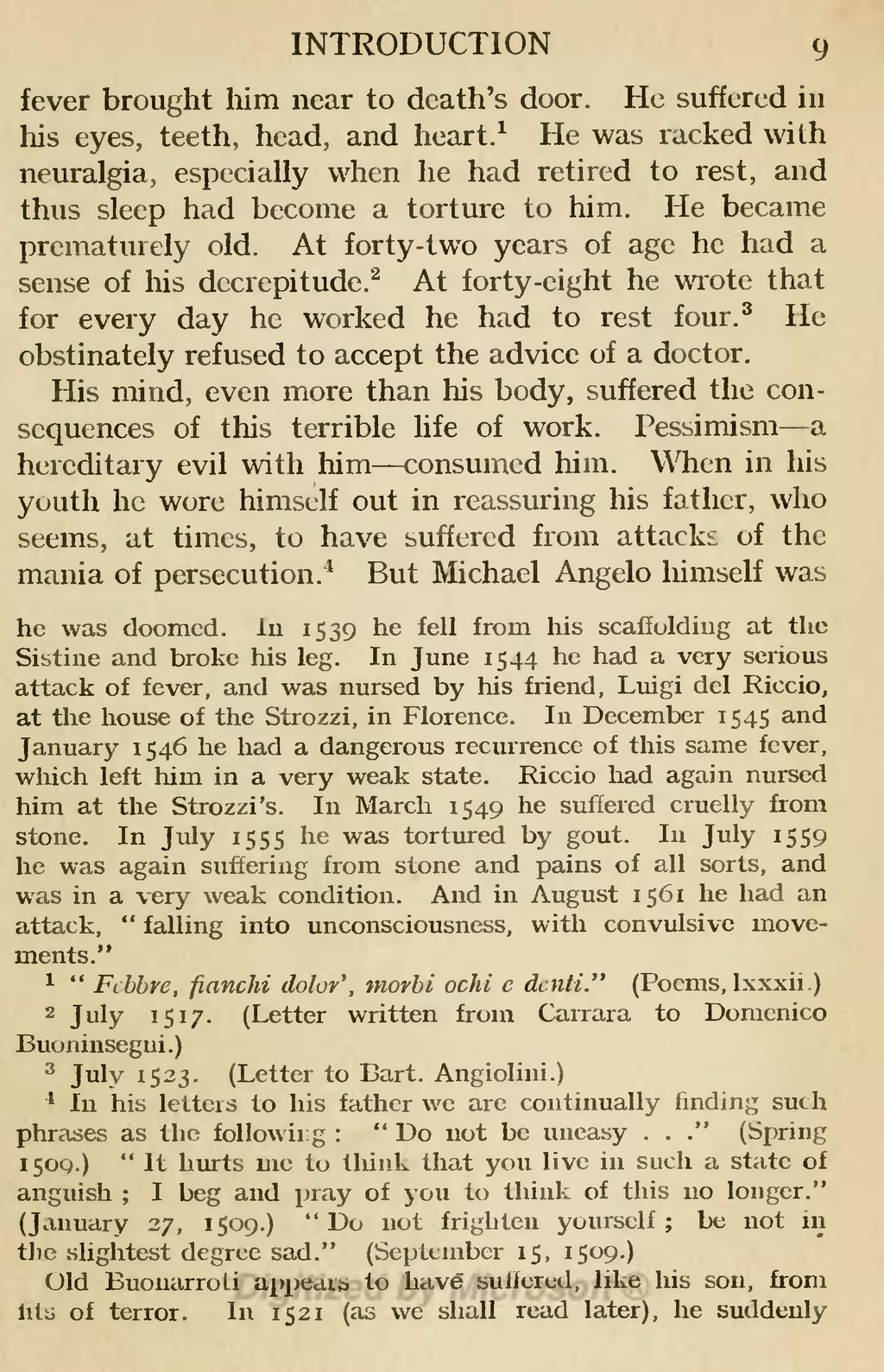fever brought him near to death's door. He suffered in his eyes, teeth, head, and heart.[1] He was racked with neuralgia, especially when he had retired to rest, and thus sleep had become a torture to him. He became prematurely old. At forty-two years of age he had a sense of his decrepitude.[2] At forty-eight he wrote that for every day he worked he had to rest four.[3] He obstinately refused to accept the advice of a doctor.
His mind, even more than his body, suffered the consequences of this terrible life of work. Pessimism—a hereditary evil with him—consumed him. When in his youth he wore himself out in reassuring his father, who seems, at times, to have suffered from attacks of the mania of persecution.[4] But Michael Angelo himself
- ↑ Febbre, fianchi dolor', morbi ochi e denti." (Poems, lxxxii.)
- ↑ July 1517. (Letter written from Carrara to Domenico Buoninsegui.)
- ↑ July 1523. (Letter to Bart. Angiolini.)
- ↑ In his letters to his father we are continually finding such phrases as the following: "Do not be uneasy…" (Spring 1509.) "It hurts me to think that you live in such a state of anguish; I beg and pray of you to think of this no longer." (January 27, 1509.) "Do not frighten yourself; be not in the slightest degree sad." (September 15, 1509.) Old Buonarroti appears to have suffered, like his son, from fits of terror. In 1521 (as we shall read later), he suddenly
was he was doomed. In 1539 he fell from his scaffolding at the Sistine and broke his leg. In June 1544 he had a very serious attack of fever, and was nursed by his friend, Luigi del Riccio, at the house of the Strozzi, in Florence. In December 1545 and January 1546 he had a dangerous recurrence of this same fever, which left him in a very weak state. Riccio had again nursed him at the Strozzi's. In March 1549 he suffered cruelly from stone. In July 1555 he was tortured by gout. In July 1559 he was again suffering from stone and pains of all sorts, and was in a very weak condition. And in August 1561 he had an attack, "falling into unconsciousness, with convulsive movements."
